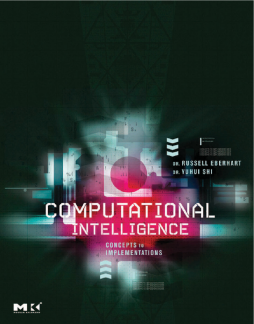
Additional Information
Book Details
Abstract
Computational Intelligence: Concepts to Implementations provides the most complete and practical coverage of computational intelligence tools and techniques to date. This book integrates various natural and engineering disciplines to establish Computational Intelligence. This is the first comprehensive textbook on the subject, supported with lots of practical examples. It asserts that computational intelligence rests on a foundation of evolutionary computation. This refreshing view has set the book apart from other books on computational intelligence.
This book lays emphasis on practical applications and computational tools, which are very useful and important for further development of the computational intelligence field. Focusing on evolutionary computation, neural networks, and fuzzy logic, the authors have constructed an approach to thinking about and working with computational intelligence that has, in their extensive experience, proved highly effective. The book moves clearly and efficiently from concepts and paradigms to algorithms and implementation techniques by focusing, in the early chapters, on the specific con. It explores a number of key themes, including self-organization, complex adaptive systems, and emergent computation. It details the metrics and analytical tools needed to assess the performance of computational intelligence tools. The book concludes with a series of case studies that illustrate a wide range of successful applications.
This book will appeal to professional and academic researchers in computational intelligence applications, tool development, and systems.
- Moves clearly and efficiently from concepts and paradigms to algorithms and implementation techniques by focusing, in the early chapters, on the specific concepts and paradigms that inform the authors' methodologies
- Explores a number of key themes, including self-organization, complex adaptive systems, and emergent computation
- Details the metrics and analytical tools needed to assess the performance of computational intelligence tools
- Concludes with a series of case studies that illustrate a wide range of successful applications
- Presents code examples in C and C++
- Provides, at the end of each chapter, review questions and exercises suitable for graduate students, as well as researchers and practitioners engaged in self-study
Russ Eberhart and Yuhui Shi have succeeded in integrating various natural and engineering disciplines to establish Computational Intelligence. This is the first comprehensive textbook, including lots of practical examples. Professor Shun-ichi Amari, RIKEN Brain Science Institute, Japan
Computational Intelligence describes a large, diverse, and evolving field of theories and techniques, all inspired in one way or the other by nature. The three pillars of CI, neural networks, fuzzy systems, and evolutionary computation, along with their many variants, interact in meaningful ways to solve very complex problems. This book is an excellent introduction to the field, greatly suited for an advanced undergraduate/ beginning graduate student course, or for an interested scientist or engineer. The authors guide the reader in an easy flowing way through the history and foundational mathematics toward practical implementation of a few fundamental problem-solving systems in each area. In the fuzzy set chapters, they picked the most common application tool, fuzzy rule-based systems, even mixing in evolutionary design into the implementation. This book is an excellent choice on its own, but, as in my case, will form the foundation for our advanced graduate courses in the CI disciplines. James M. Keller, University of Missouri-Columbia
The excellent new book by Eberhart and Shi asserts that computational intelligence rests on a foundation of evolutionary computation. This refreshing view has set the book apart from other books on computational intelligence. The book has an emphasis on practical applications and computational tools, which are very useful and important for further development of the computational intelligence field. I am delighted that I have a copy of this book. Professor Xin Yao, The Centre of Excellence for Research in Computational Intelligence and Applications
